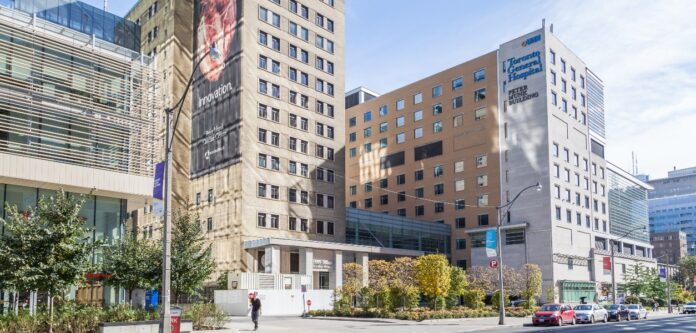In the relentless battle against COVID-19, more hope shines through from the University Health Network (UHN) in the form of a pioneering treatment that leverages the healing potential of placental cells.
This innovative approach has shown remarkable success in a pilot study published in Intensive Care Med, offering new avenues for combating severe complications associated with the virus, particularly Acute Respiratory Distress Syndrome (ARDS).
ARDS presents a significant challenge in the COVID-19 pandemic, characterized by severe lung inflammation and damage, leading to respiratory failure in critical cases. The condition stems from the virus infiltrating the lower respiratory tract, causing widespread damage that requires urgent medical intervention. Traditionally associated with high mortality rates, effective ARDS treatments has been a crucial aspect of COVID-19 research.
Repurposing placental cells
The UHN study focuses on the utilization of decidual stromal cells (DSCs) from the placenta, a novel therapeutic strategy drawing from the cells’ known efficacy in managing acute inflammatory conditions. The trial’s success in using DSCs to treat COVID-19–induced ARDS could mark a significant breakthrough in medical treatment protocols for the disease.
Dr. John Granton, a staff physician at UHN and investigator in the study, highlighted the promising outcomes to a UHN press release, stating, “We found that DSC infusions were associated with an impressive 84.2% survival rate suggesting that these infusions are effective at treating ARDS.”
Spanning from December 2020 to June 2021, the clinical trial enrolled 19 adult patients across three Ontario hospitals, all suffering from COVID-19–induced ARDS. The administration of DSC treatments was closely monitored, with results indicating not only a high survival rate but also the safety and efficacy of this innovative approach. The findings suggest DSC therapy could become a vital tool in treating severe respiratory complications caused by COVID-19.
Dr. Igor Novitzky Basso, a Clinician Investigator at the Princess Margaret Cancer Centre and another key researcher on the study, emphasized the importance of further investigation.
“This trial supports the further evaluation of DSCs with a larger, randomized, controlled trial that will comprehensively evaluate the safety profile and efficacy of DSC in severe ARDS.”
Such studies are essential for validating DSC therapy’s effectiveness and integrating it into standard care practices.
The role of community and donors
The pilot study’s success was bolstered by the generous support of donors, including the Cargojet Foundation. This collaboration highlights the critical role of community backing in advancing medical research, enabling scientists to explore novel treatments and conduct the necessary trials to bring these innovations to the forefront of medical practice.
Dr. Jonas Mattsson, director of the Hans Messner Allogeneic Transplant Program at the Princess Margaret Cancer Centre and co-author of the study, reflected on the importance of this support, remarking, “Thanks to the generous support of our donors […] we can conduct these innovative pilot studies to generate the evidence we need to carry out larger clinical trials.”
This sentiment shows just how important collaborative efforts are in tackling the complexities of COVID-19 treatment in driving medical breakthroughs.
Expanding the research forward
As the world continues to grapple with the challenges posed by COVID-19, this UHN study represents a significant stride forward for effective treatments. The potential of placental cell therapy to improve survival rates in severe ARDS patients offers a glimmer of hope, paving the way for future research that could expand the application of this therapy to other inflammatory and respiratory conditions.
With continued research, support, and collaboration, placental cell therapy could soon become a cornerstone in the fight against COVID-19, welcoming a new era of innovative and life-saving treatments.








































